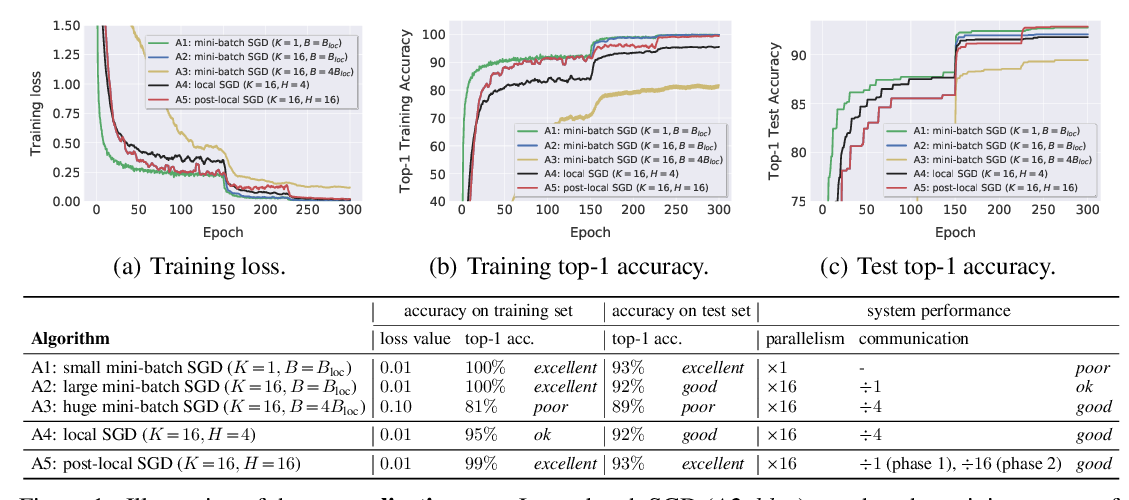Abstract:
Nesterov SGD is widely used for training modern neural networks and other machine learning models. Yet, its advantages over SGD have not been theoretically clarified. Indeed, as we show in this paper, both theoretically and empirically, Nesterov SGD with any parameter selection does not in general provide acceleration over ordinary SGD. Furthermore, Nesterov SGD may diverge for step sizes that ensure convergence of ordinary SGD. This is in contrast to the classical results in the deterministic setting, where the same step size ensures accelerated convergence of the Nesterov's method over optimal gradient descent.
To address the non-acceleration issue, we introduce a compensation term to Nesterov SGD. The resulting algorithm, which we call MaSS, converges for same step sizes as SGD. We prove that MaSS obtains an accelerated convergence rates over SGD for any mini-batch size in the linear setting. For full batch, the convergence rate of MaSS matches the well-known accelerated rate of the Nesterov's method.
We also analyze the practically important question of the dependence of the convergence rate and optimal hyper-parameters on the mini-batch size, demonstrating three distinct regimes: linear scaling, diminishing returns and saturation.
Experimental evaluation of MaSS for several standard architectures of deep networks, including ResNet and convolutional networks, shows improved performance over SGD, Nesterov SGD and Adam.

